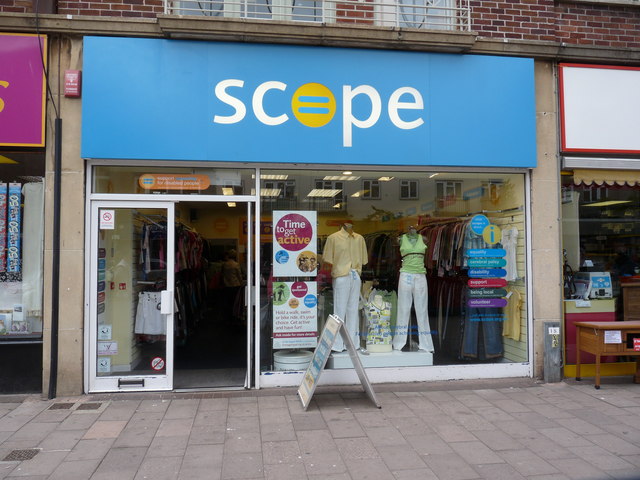When it comes to company formations, China is from Mars and the Western world is from Venus. For most things related to doing business in China, I often stress the similarities. But when it comes to forming a China Wholly Foreign Owned Enterprises (WFOE) I make it a point to stress the differences. I do this by stressing how forming a WFOE in China typically costs more than ten times what it costs to form an LLC or a corporation in the United States or in Europe, and it usually takes at least ten times longer to do.
I then joke how our domestic business lawyers in Spain and in the United States barely care what they charge for forming companies in those two countries because their overriding goal is to bring in a client for life and then help the client with everything that comes after — on things like contracts, intellectual property, real estate, employment, immigration, and more so lately, international trade. Forming corporations and LLCs is essentially a loss leader, made up for later with an onslaught of work typically needed once a company is up and running. Then I half-joke about how forming a WFOE in China is so miserable that by the time our China WFOE lawyers finish that task “you will be so sick of us, you will never want to talk with our China lawyers again.” I then mention that you very well may not even need to do so.
Why so different? Very briefly, in the United States and to a certain extent in Spain as well, registering and establishing a corporate entity is relatively fast and easy and most of what is difficult comes later. But in China, registering and establishing an entity like a WFOE for the most part cannot be accomplished without doing the hard slog work first.
This post focuses on the business scope of the WFOE you will be forming and just by looking at this relatively small portion of forming a WFOE can help you understand why forming a China WFOE can be so complex.
What exactly is business scope? Think of it as what your company will be legally allowed to do once formed. When it comes to forming a company in Spain or in the United States, scope is more of an afterthought than anything else. In the United States, if you want to form a company that will sell men’s clothing at the front of the store and have a cafe at the back, you might list your scope in one of the following two ways:
- Sell clothing and operate a cafe and engage in any other lawfully permitted business activities.
- Engage in lawfully permitted business activities.
The shorter and broader type statement (the second one) would be more common.
But in China how you would list your business scope is very different. Let’s take the clothing store with a cafe in the back. You might list the scope for that as follows:
- Operate a retail business.
- Operate a retail clothing business with a cafe.
But get this. Depending on the Chinese city (or even the district within that city) in which you are seeking to form your clothing-cafe WFOE, there is a good chance your WFOE application will be denied for being too broad. When listing business scope for a China WFOE registration, you usually must describe the scope precisely and in a fair amount of detail. After you do that, China’s Ministry of Commerce (MOFCOM) and the Administration of Industry and Commerce (AIC) will almost certainly review every word of your proposed scope to determine if what you are proposing your WFOE will do in China is even allowed to be done by a WFOE.
The Chinese Commerce authorities will also review your WFOE’s business scope to determine whether it can be done within one WFOE or whether two or more WFOEs will be required. Take the clothing-cafe business. It’s impossible to know what every district in every city in China would do with that sort of scope, but I would say the odds are good that you will need to form two WFOEs to both sell clothes and coffee and baked goods in many Chinese cities.
It is important you get your business scope right the first time. If you get it wrong this usually will mean you will need to negotiate a new scope with the Chinese authorities. But in some parts of China, you are at risk of your WFOE being denied and having to start all over on your WFOE formation. I repeat: it is important you get your business scope right the first time.
Choosing the correct scope of your China WFOE is also critical for avoiding problems months and even years after your WFOE has been formed. Though it’s not common for Chinese authorities to censure an organization for periodically stepping outside the bounds of its officially authorized business activities to engage in auxiliary activities, the ability to issue tax invoices to its partners for the specific services rendered is very important. These clients or customers will normally insist on a specific invoice based on a certain value-added tax (VAT) rate for use as a tax offset or deduction, and it would not be unusual for them to refuse to make payment for services rendered if the appropriate invoice cannot be issued. Therefore, because a VAT invoice cannot be issued at the relevant tax rate for activities not specified in the business scope, it is critically important to negotiate approval of a sufficiently broad and relevant business scope with careful consideration from the beginning of one’s anticipated scope of business activities and client’s and customer’s required invoicing.
I then explain the various options foreign companies have for going into China — still essentially confined to going it alone as a Wholly Foreign Owned Entity (WFOE, a/k/a Wholly Owned Foreign Entity or Enterprise or WOFE), Representative Office (Rep Office) or partnering with a Chinese company in the form of a Joint Venture (JV).
Then we start talking about what sort of entity makes sense for this particular company. Nine out of ten times, the company wants to go into China on its own as a WFOE and that is where the problem sometimes starts. The company has heard that China is very capitalistic and “wide open” and did not know that is not really the case, particularly as it relates to foreign companies.
China has what it calls its “Catalog for the Guidance of Foreign Invested Enterprises.” This catalog divides foreign investment into “encouraged,” “restricted” and “prohibited” investments. Foreign companies cannot invest in prohibited industries and foreign investment in restricted industries typically requires the foreign company enter into a joint venture with a Chinese company. Industries that are not classified into any of the three categories are generally assumed to be permitted.
So every once in a while, I have to inform an American or European company that it simply cannot go into China at all or that it can only do so if it finds a Chinese company with which it can joint venture. The moral of the story is that it makes sense to determine whether your proposed company can work in China at all, and to do so before funding market and operations research or China trips.
But this research is oftentimes not so simple because much depends on how the business is defined when the application is made. The business scope is relevant to the catalog on foreign investment because a business sometimes can fit within one or more categories of the catalog, and how you describe your business scope on your WFOE application can make the difference between approval and rejection. You sometimes can massage the description of your business scope to obtain more favorable classification.
BUT — and this is why I am writing this post now — if you under or overreach on the description of your business scope, you might find yourselves in big trouble. We are getting an increasing number of calls from American companies in trouble with the Chinese government for doing things in their business that were not mentioned in the business scope section of their initial WFOE.
In some cases, the companies have admitted to us that they were never “really comfortable” with the business scope mentioned in their applications, but that the company they had used to form their WFOE had “pushed” them into it as it would “make things much easier.” In some cases, the scope of the business changed after the application was submitted and the company had failed to secure approval in advance for the change. And in some cases, the company probably would never have been approved had it been upfront and honest in its application. In nearly all instances, the companies had managed to secure local approval but were now in trouble with Beijing, which constantly audits these applications. In one instance, the local government went back and changed its mind, probably after conducting an audit of its own.
Ppplying for a WFOE in China involves a lot more than just filling out a form and getting approval. It does matter for what you get approved and you (or whomever you are using for your WFOE application) need to know China’s foreign investment catalog inside and out before applying and then tailor your application to meet both the requirements of the foreign investment catalog AND the reality of what you will be doing in China. A failure to comply on both fronts will likely lead to a rejection of your application or at worst, being shut down months or years later.

























